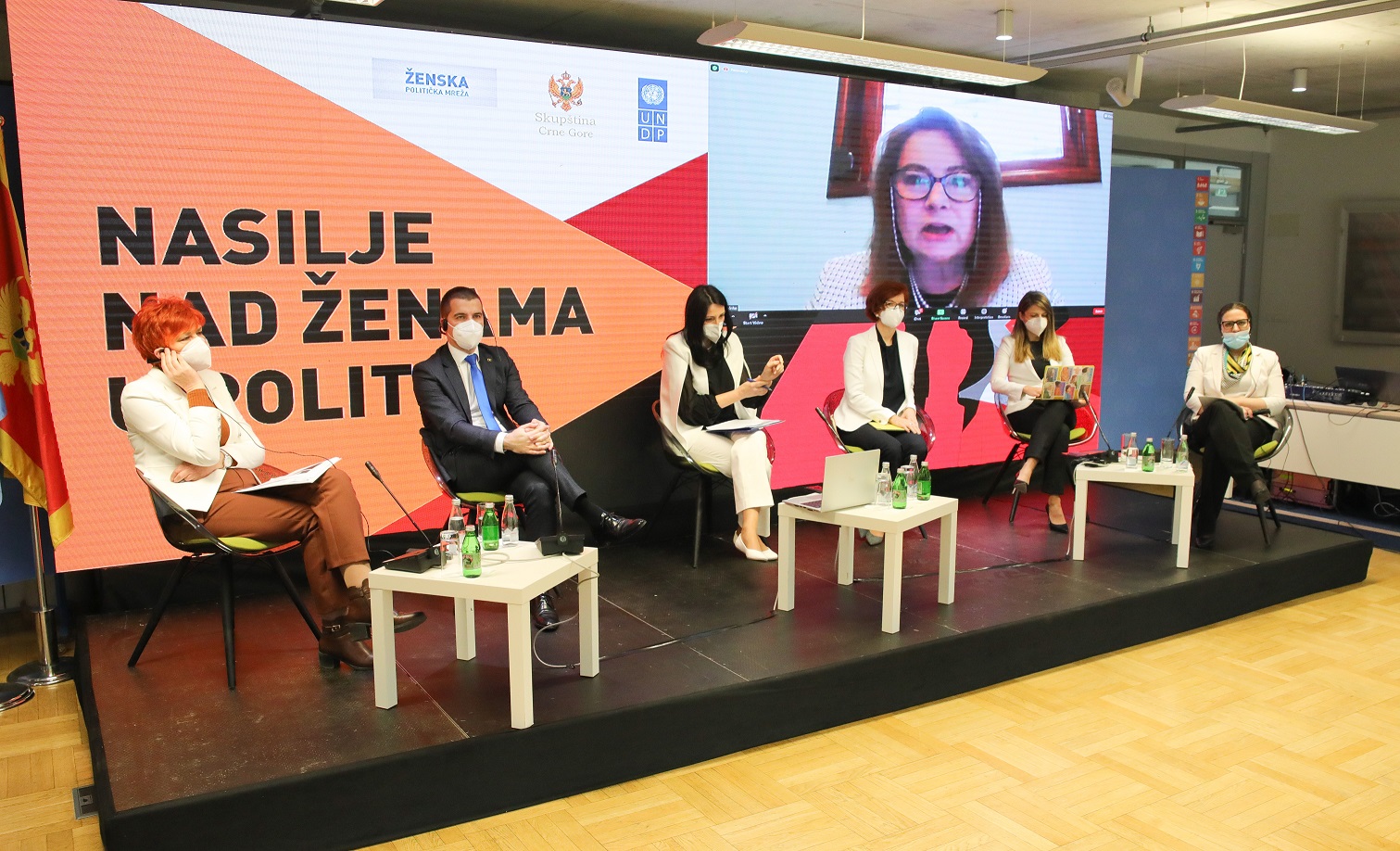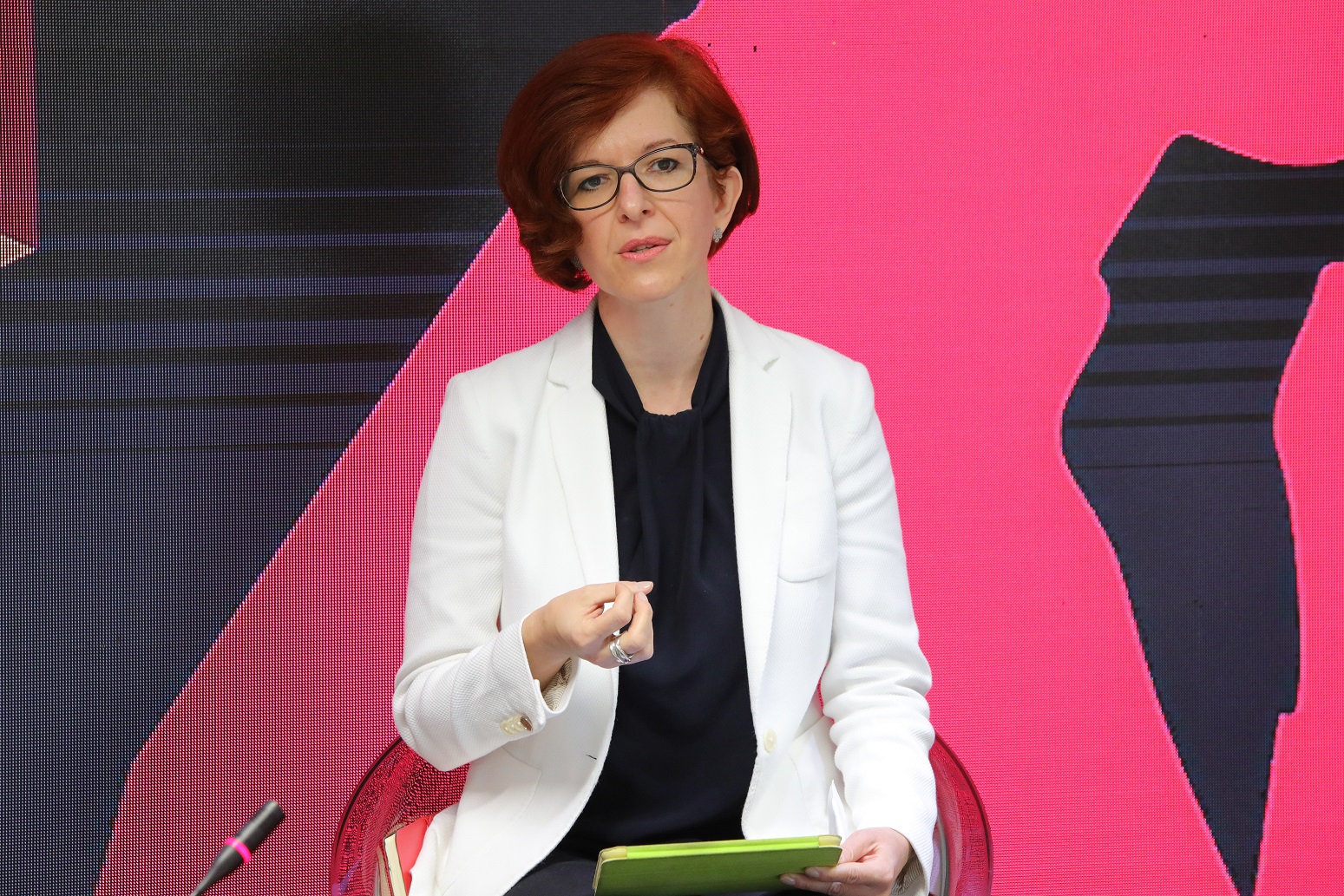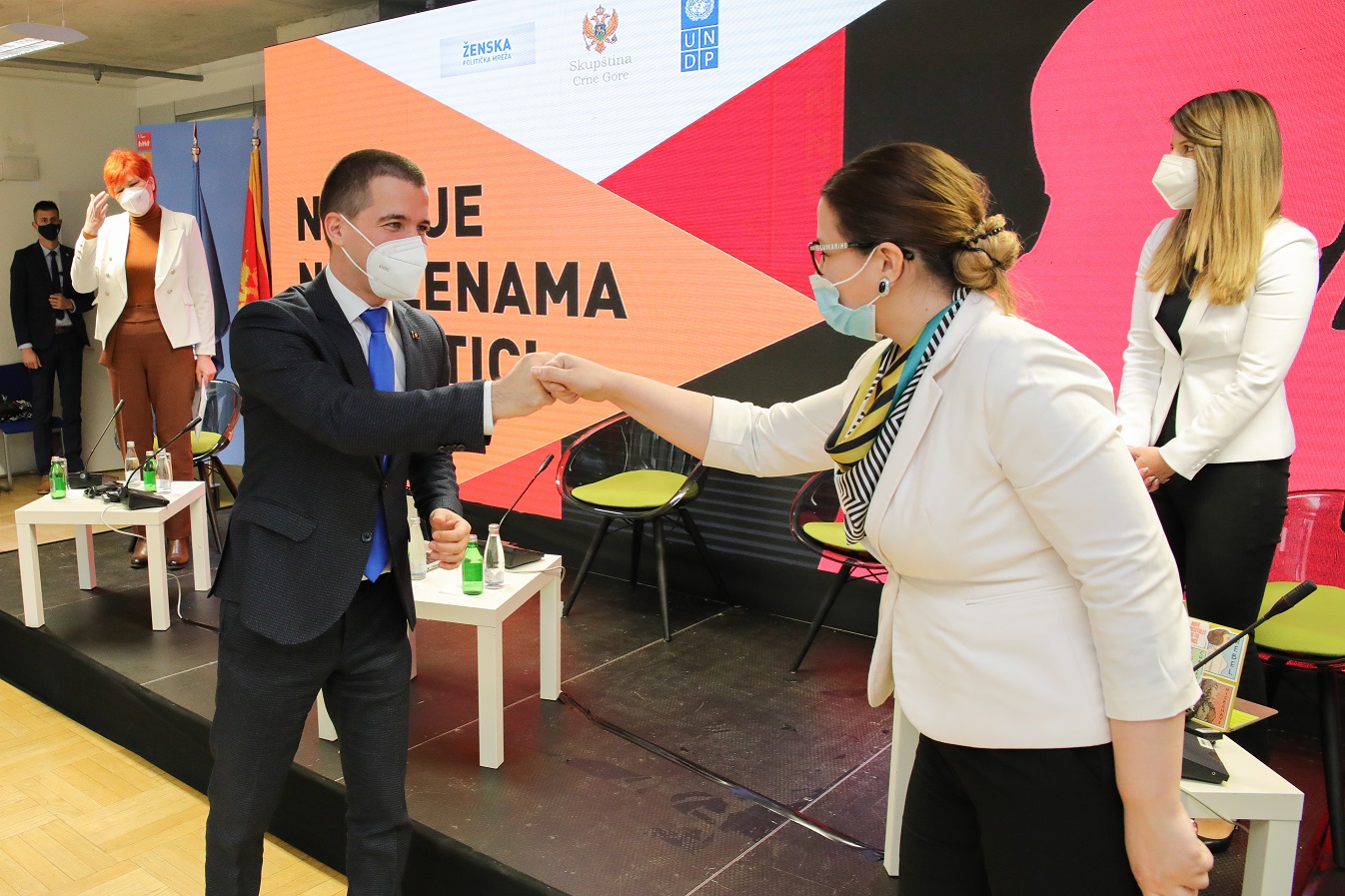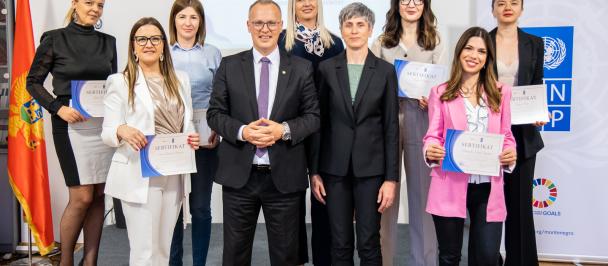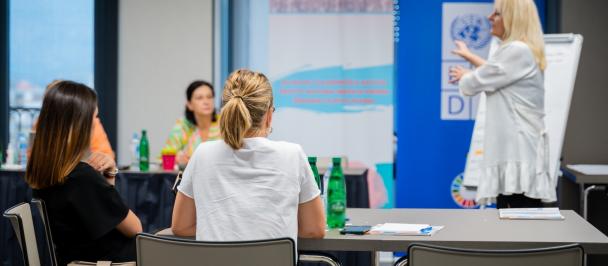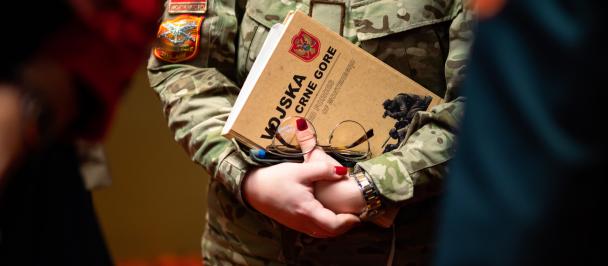Podgorica, Friday, March 5, 2021 - Despite progress made in Montenegro, numerous systemic shortcomings continue to challenge women's political participation – patriarchal attitudes, prejudices and insufficient interest on behalf of political parties are key obstacles to their more active involvement in politics. These are some of the key findings from the recent research conducted by the Women's Political Network.
A conference organized by the Women's Political Network, the Parliament of Montenegro and the UNDP Office to present the research on violence against women in politics was held today in Podgorica. The research showed that nine out of ten women politicians in Montenegro were discriminated against just because they were women, while seven out of ten experienced some form of violence.
In the introductory part of the conference, the President of the Parliament of Montenegro Aleksa Bečić addressed the audience, stating that "the announcement video of this Conference is at the same time provocative and worrying and binding, because it talks about actions that are commonplace in our immediate environment, none of us are aware of. Not even the victims of violence themselves are aware of it at times, because some behaviors become so common that we forget that they are illegal."
President Bečić used the occasion to condemn the frequent "sexist, misogynistic and, in general, discriminatory comments, photos or videos, which, unfortunately, we have been able to see too often lately on the public scene, especially when it comes to women in politics."
The President of the Parliament expressed his gratitude to the Women's Political Network and UNDP and welcomed the research, which shed light on and clarified "what happens to a woman who is involved in politics and even worse, what a woman who is starting to be involved in politics is facing."
UNDP Resident Representative to Montenegro Daniela Gašparikova reminded that most countries, including Montenegro, have committed themselves to greater participation of women in decision-making and politics within the framework of achieving UN Sustainable Development Goals. "However, for some time now, we have noticed that this commitment, consciously or not, faces resistance in various forms – from prejudices, structural obstacles, insults or humiliating allusions based on women's appearance to threats of violence. The scenes we can see in social media today, which attempt to attack, belittle and humiliate women politicians and women in public life, are reminiscent of those used half a century ago against women's suffrage fighters. That is unacceptable and must not be tolerated," she said adding that functional legal and institutional measures were needed to combat violence against women in all its forms. Gašparikova stressed that UNDP would continue to support efforts to come up with lasting solutions that would enable countries to achieve gender equality and combat violence.
According to the Women's Political Network (WPM) coordinators for combating gender-based violence, Nataša Vuković and Ivana Raščanin, "Gender-based violence most often occurs with the aim of discouraging a woman by letting her know that her place is not on the public stage or in the decision-making process."
Presenting the results of the research on gender-based violence against women politicians in Montenegro, they expressed their belief that the findings of the research will help determine the character and manner of violence against women in the political sphere, as well as demystify its significance and impact on all segments. The Women's Political Network believes that a systematic and decisive response to this phenomenon is needed, and those sporadic reactions to individual cases do not contribute to solving the problem," said WPM representatives Vuković and Raščanin.
U.S. Ambassador Judy Rising Reinke said that, although the year 2020 marked the centenary of gaining the right to vote by many women in the United States, much work remains to be done to achieve gender equality in politics and all areas of public life. She called on all women in politics, and in general, to stand up for themselves and for each other. "I welcome the fact that you have shown solidarity in condemning the recent misogynistic attacks on your colleagues. Such attacks, which often aim to disparage and ruin women because they dare to have a voice and have it heard, should always be strongly condemned. This is not about politics: it is about dignity, empowerment and solidarity," the ambassador said.
According to the Minister of Public Administration, Digital Society and Media in the Government of Montenegro, Tamara Srzentić, women in office and in public life have the opportunity to influence change, create a society of equal opportunities, create new opportunities for new girls who may they did not experience equal chances. That is why, as she said, she will work with her partners to raise media literacy and promote tools for controlling chauvinistic and misogynistic narratives.
"All of us who share the same values have the opportunity to oppose all sexist and misogynistic attacks, hate speech that destroys the dignity of not only Sanja, Vesna, Draginja, Tamara, Aleksandra, Jelena – the list is way too long – but also the dignity of each of us, which is why some bold, intelligent girls do not end fully affirming their talents and dreaming big dreams," Srzentić said.
Mila Carovska, Minister of Education and Science of the Republic of North Macedonia, Elvira Kovács, Vice-Chair of the Gender Equality Committee in the Parliamentary Assembly of the Council of Europe, and Ana Radičević, Program Director at the NDI Regional Office in Sarajevo, also addressed the Conference.
The Protector of Human Rights and Freedoms, Siniša Bjeković, as well as the Minister of State Administration and Local Self-Government in the Government of the Republic of Serbia, Marija Obradović, addressed the audience via a video link.

 Locations
Locations